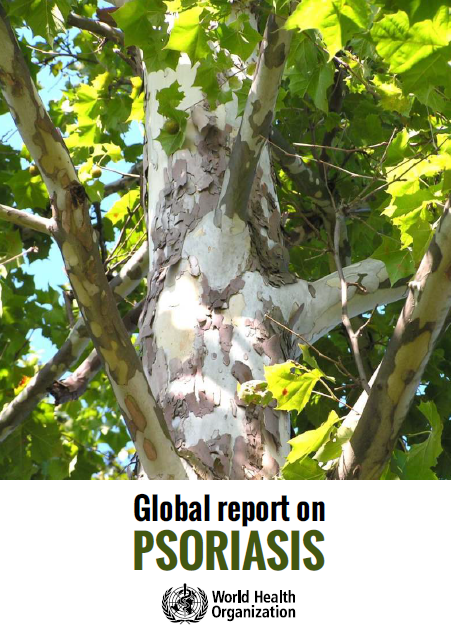World Health Organization, Food and Agriculture Organization of the United Nations
What are healthy diets? Joint statement by the Food and Agriculture Organization of the United Nations and the World Health Organization
Publication
31 Oct 2024

The World Health Organization (WHO) Report on Psoriasis was published in 2016 in response to the 2014 World Health Assembly resolution (WHA67.9) that stated psoriasis should be viewed as a serious non-communicable disease (NCD). By passing the resolution, all Member States recognized the burden of psoriasis and committed to increase their efforts to fight the stigma and unnecessary exclusion of people living with psoriasis. This WHO Global Report was written to bring the public health impact of psoriasis into focus, help raise awareness of the range of ways that psoriasis can affect peoples’ lives, and empower policymakers with practical solutions to improve the health care and social inclusion of people living with psoriasis in their populations.
The resolution and subsequent WHO Global Report spurred many actions, including the establishment of the Global Psoriasis Atlas (GPA)* in 2016. The GPA continues to work towards the goals set out in this report, namely filling the gaps in global data on the epidemiology of psoriasis, to aid discussions with policymakers and other stakeholders in order to improve the lives of those living with psoriasis around the world.
*Led by Professor Chris Griffiths OBE, the GPA is a collaboration between three leading international organisations in world dermatology: the International League of Dermatological Societies (ILDS); the International Federation of Psoriasis Associations (IFPA); and the International Psoriasis Council (IPC) with The University of Manchester (UoM) as the lead academic institution.